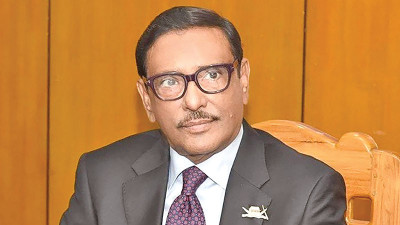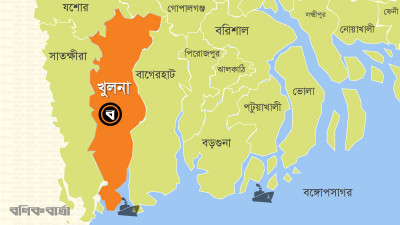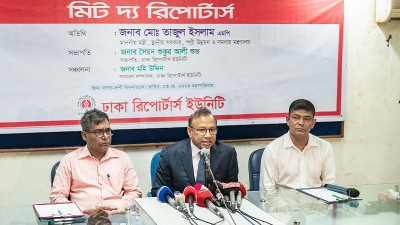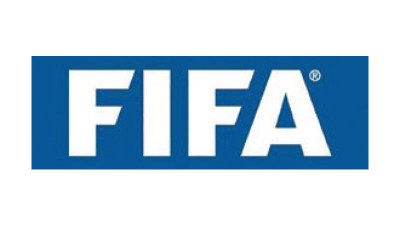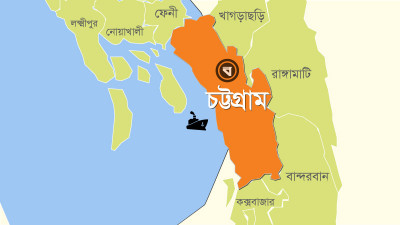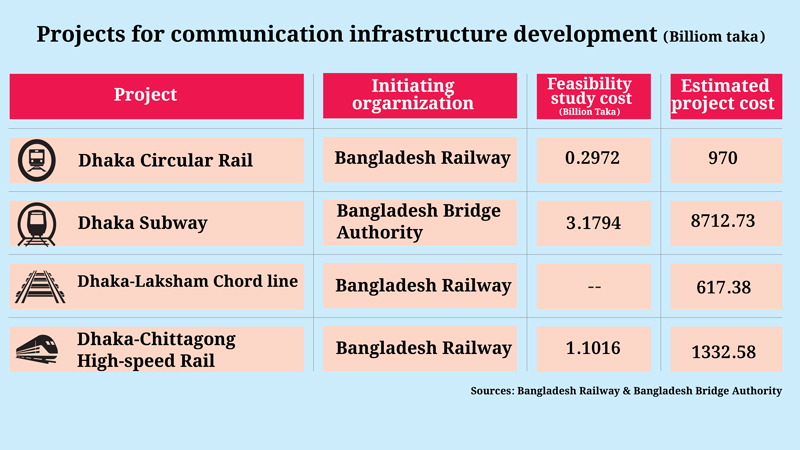 Bonik Barta graph
Bonik Barta graph The government planned to construct a high-speed rail from
Dhaka to Chittagong. Bangladesh Railway spent Tk 1.1 billion to carry out the feasibility
study. The cost of rail line was estimated Tk 1.3326 trillion or $11.4 billion.
The feasibility study was conducted seven years ago. But, officials of the
Railways Ministry are now saying that the project will not be implemented for
now.
Bangladesh Railway did the same thing with regard to Dhaka
circular rail, another huge project worth Tk 970 billion. Also, the Railway has
recently postponed a project worth 617.38 billion to construct Dhaka-Laksham chord
line rail. Meanwhile, Bangladesh Bridge Authority has adopted a ‘go slow’
policy about the Dhaka subway project at a cost of Tk 8.7127 trillion.
Despite conducting feasibility studies, the government is moving
away from many likely big projects on communication infrastructure. It is being
said that these projects will be implemented later. The current economic
situation is discussed as the reason for backtracking although a huge amount
has already been spent on the feasibility studies. Experts on communication
infrastructure regard the spending on feasibility studies as a waste of money.
“Roads and Highways Department (RHD) has its own masterplan on
communication infrastructure development. Dhaka Transport Co-ordination Authority (DTCA)
also has masterplan when it comes to undertaking projects in Dhaka. This
masterplan is being updated in accordance with the need. It is stated in the
masterplan as to which project is suitable or necessary,” Professor Dr Md Hadiuzzaman
of Civil Engineering Department at the Bangladesh University of Engineering and
Technology (BUET) told Bonik Barta.
“But, we can see that deviating from the plan, Bangladesh
Bridge Authority conducted a study on subway. Railway did the survey on
circular road. When an organization itself conducts a survey, this becomes
questionable. This has actually happened in cases of these studies. The
projects remain in the dark despite the fact that billions of taka were spent
on feasibility studies,” he said.
One metro rail line (Uttara-Motijheel, MRT line-6) has started
operation. Work on two other are ongoing. Three more metro lines are in the
pipeline. Dhaka Mass Transit Company Limited (DMTCL) under the Ministry of Road
Transport and Bridges is implementing the projects. Bangladesh Bridge
Authority, which is under the same ministry, has conducted feasibility study
separately for subway, which is similar to metro rail. A sum of Tk 3.18 billion
was spent on the study done in 2021. The project was scheduled to be
implemented in three phases between 2021 and 2050. From 2021 to 2029, some 109
kilometers of subway were to be constructed. According to the plan, 185
kilometers and 257 kilometers were supposed to be built in the second and third
phases. The total cost would be over Tk 8.7127 trillion.
The project was presented at a meeting of the Board of
Directors of Bangladesh Bridge Authority in May, 2022. Road Transport and
Bridges Minister Obaidul Quader, however, directed to adopt a ‘go slow’
approach.
Quazi Mohammad Ferdous, Chief Engineer of Bangladesh Bridge
Authority, claims that Dhaka subway project was neither cancelled nor
postponed. “We are looking for investors for the project. We have started talks
to primarily construct four lines through public-private partnership,” he told
Bonik Barta. Initiator
He also said, “Many people mixed up metro rail with subway.
Subway will be constructed in places where metro rail service cannot reach. The
project is very important to end the traffic congestion in Dhaka and the Bridge
Authority is working to implement it.”
In 2017, Bangladesh Railway conducted a feasibility study to
construct Dhaka-Chittagong high-speed rail at a cost of Tk 1.1 billion. The
project cost was estimated at Tk 1.3326 billion. Amidst talks about the
project, then Railways Minister Nurul Islam Sujan informed at the beginning of
2022 that the project would not be implemented for now. Explaining the reasons,
he said, “Before starting the project, it is necessary to complete some short
and mid-term works. The high-speed rail will be constructed only after the
completion of these works.”
Roads and Highways Division carried out a feasibility study in
2013 for the construction of elevated expressway from Dhaka to all the way to
Chittagong in order improve communication between the capital and the port
city. It cost Tk 980 million to conduct the study. Following wrangling over the
financing, the project was cancelled in 2021.
Bangladesh Railway planned to build 81 kilometers of rail line
circling Dhaka aiming to reduce the congestion in the capital by enhancing train
communication. About Tk 300 million was spent on the feasibility study.
According to the study, the estimated cost of the project would be Tk 970
billion. The majority of the circular rail was supposed to be elevated and the
remaining part was to be underground. This project also appears to be doomed.
Professor Dr Hadiuzzaman believes that conducting feasibility
studies beyond masterplans is a huge procedural error. “It was wrong to go for full-fledged
feasibility studies. These organizations could have lessened the waste of money
by opting for pre-feasibility studies.”
“The organizations involved in the implementation of the
development projects should conduct feasibility studies in line with the
masterplans. Before these studies, our policymakers will have to be more
tactical. Our little country with a large population has limited resources.
Waste of limited resources cannot be exemplary under any circumstances,” he
said.


